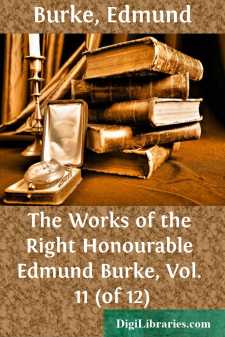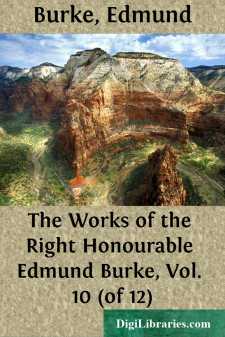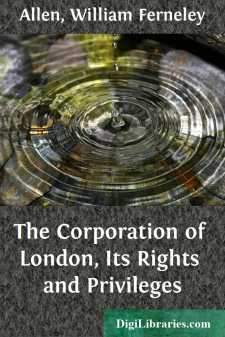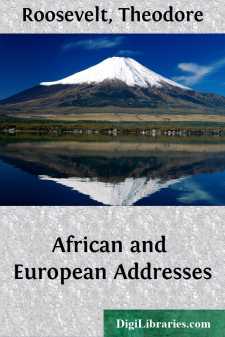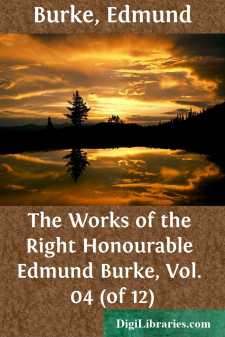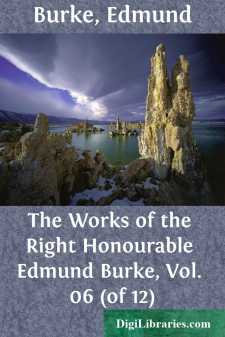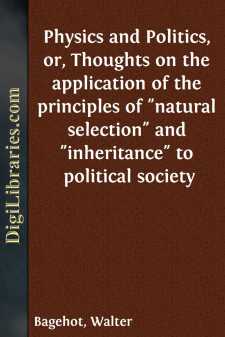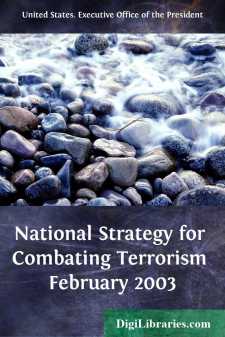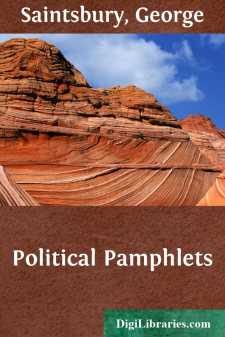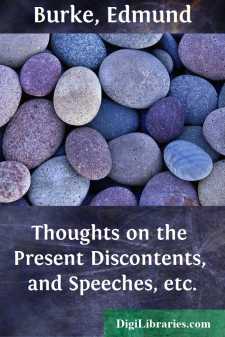Political Science
- Conspiracy & Scandal Investigations 1
- Constitutions 7
- Economic Conditions 10
- General
- Government 6
- History & Theory 132
- Peace 1
General Books
Sort by:
by:
Edmund Burke
REPORT Made on the 30th April, 1794, from the Committee of the House of Commons, appointed to inspect the Lords' Journals, in relation to their proceeding on the trial of Warren Hastings, Esquire, and to report what they find therein to the House (which committee were the managers appointed to make good the articles of impeachment against the said Warren Hastings, Esquire); and who were afterwards...
more...
by:
Edmund Burke
SPEECH IN OPENING THE IMPEACHMENT. THIRD DAY: MONDAY, FEBRUARY 18, 1788. My Lords,—The gentlemen who are appointed by the Commons to manage this prosecution, have directed me to inform your Lordships, that they have very carefully and attentively weighed the magnitude of the subject which they bring before you with the time which the nature and circumstances of affairs allow for their conducting it....
more...
The first historical notice of the City of London occurs in that portion of the Annals of Tacitus which treats of the insurrection of Boadicea. At that time it was a place much frequented by merchants, attracted partly by the natural advantages of the site, and partly by the vicinity of the Roman camp at Islington. It is stated that 70,000 persons, of both sexes and of all ages, were massacred by that...
more...
Introduction Mr. Roosevelt as an Orator In the tumult, on the one hand of admiration and praise and on the other of denunciation and criticism, which Mr. Roosevelt's tour in Africa and Europe excited throughout the civilized world, there was one—and I am inclined to think only one—note of common agreement. Friends and foes united in recognizing the surprising versatility of talents and of...
more...
by:
Edmund Burke
A LETTER TO A MEMBER OF THE NATIONAL ASSEMBLY, IN ANSWER TO SOME OBJECTIONS TO HIS BOOK ON FRENCH AFFAIRS. 1791. Sir,—I had the honor to receive your letter of the 17th of November last, in which, with some exceptions, you are pleased to consider favorably the letter I have written on the affairs of France. I shall ever accept any mark of approbation attended with instruction with more pleasure than...
more...
by:
Edmund Burke
FOURTH LETTER ON THE PROPOSALS FOR PEACE WITH THE REGICIDE DIRECTORY OF FRANCE. ADDRESSED TO THE EARL FITZWILLIAM. 1795-7. Letter from the Right Honorable the Lord Auckland to the Lord Bishop of Rochester. EDEN FARM, KENT, July 18th, 1812. My dear Lord,—Mr. Burke's fourth letter to Lord Fitzwilliam is personally interesting to me: I have perused it with a respectful attention. When I...
more...
by:
Walter Bagehot
THE PRELIMINARY AGE. One peculiarity of this age is the sudden acquisition of much physical knowledge. There is scarcely a department of science or art which is the same, or at all the same, as it was fifty years ago. A new world of inventions—of railways and of telegraphs—has grown up around us which we cannot help seeing; a new world of ideas is in the air and affects us, though we do not see it....
more...
INTRODUCTION "No group or nation should mistake America's intentions:We will not rest until terrorist groups of global reachhave been found, have been stopped, and have been defeated." PRESIDENT GEORGE W. BUSHNOVEMBER 6, 2001 The terrorist attacks of September 11, 2001, in Washington, D.C., New York City, and Pennsylvania were acts of war against the United States of America and its...
more...
INTRODUCTION It is sometimes thought, and very often said, that political writing, after its special day is done, becomes more dead than any other kind of literature, or even journalism. I do not know whether my own judgment is perverted by the fact of a special devotion to the business, but it certainly seems to me that both the thought and the saying are mistakes. Indeed, a rough-and-ready refutation...
more...
by:
Edmund Burke
INTRODUCTION Edmund Burke was born at Dublin on the first of January, 1730. His father was an attorney, who had fifteen children, of whom all but four died in their youth. Edmund, the second son, being of delicate health in his childhood, was taught at home and at his grandfather’s house in the country before he was sent with his two brothers Garrett and Richard to a school at Ballitore, under...
more...


